
The State of the Union Address is an annual message delivered by the president of the United States to a joint session of the United States Congress near the beginning of most calendar years on the current condition of the nation. The State of the Union Address generally includes reports on the nation's budget, economy, news, agenda, progress, achievements and the president's priorities and legislative proposals.

The Federal Emergency Management Agency (FEMA) is an agency of the United States Department of Homeland Security (DHS), initially created under President Jimmy Carter by Presidential Reorganization Plan No. 3 of 1978 and implemented by two Executive Orders on April 1, 1979. The agency's primary purpose is to coordinate the response to a disaster that has occurred in the United States and that overwhelms the resources of local and state authorities. The governor of the state in which the disaster occurs must declare a state of emergency and formally request from the President that FEMA and the federal government respond to the disaster. The only exception to the state's gubernatorial declaration requirement occurs when an emergency or disaster takes place on federal property or to a federal asset—for example, the 1995 bombing of the Alfred P. Murrah Federal Building in Oklahoma City, Oklahoma, or the Space Shuttle Columbia in the 2003 return-flight disaster.

Haley Reeves Barbour is an American attorney, politician, and lobbyist who served as the 63rd governor of Mississippi from 2004 to 2012. A member of the Republican Party, he previously served as chairman of the Republican National Committee from 1993 to 1997.

Kathleen Marie Blanco was an American politician who served as the 54th governor of Louisiana from January 2004 to January 2008. A member of the Democratic Party, she was the first and, to date, only woman elected as the state's governor.

Cynthia Ann McKinney is an American politician, academic, and conspiracy theorist. As a member of the Democratic Party, she served six terms in the United States House of Representatives. She was the first African American woman elected to represent Georgia in the House. She left the Democratic Party and ran in 2008 as the presidential nominee of the Green Party. She ran for vice president in 2020 after the Green Party of Alaska formally nominated her and draft-nominated Jesse Ventura for president. She is currently a professor in Political Science at North South University in Bangladesh.

The 2003 State of the Union Address was given by the 43rd president of the United States, George W. Bush, on January 28, 2003, at 9:00 p.m. EST, in the chamber of the United States House of Representatives to the 108th United States Congress. It was Bush's second State of the Union Address and his third speech to a joint session of the United States Congress. Presiding over this joint session was the House speaker, Dennis Hastert, accompanied by Dick Cheney, the vice president, in his capacity as the president of the Senate.

Piyush "Bobby" Jindal is an American politician who served as the 55th governor of Louisiana from 2008 to 2016. Jindal also served as a member of the U.S. House of Representatives and Chairman of the Republican Governors Association.

Timothy Michael Kaine is an American lawyer and politician serving as the junior United States senator from Virginia since 2013. A member of the Democratic Party, he served as the 38th lieutenant governor of Virginia from 2002 to 2006 and 70th governor of Virginia from 2006 to 2010. Kaine was the Democratic nominee for vice president of the United States in the 2016 election as Hillary Clinton's running mate.
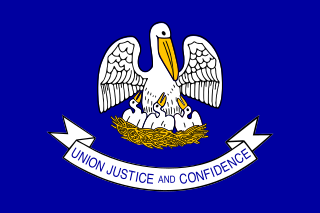
Criticism of the government response to Hurricane Katrina was a major political dispute in the United States in 2005 that consisted primarily of condemnations of mismanagement and lack of preparation in the relief effort in response to Hurricane Katrina and its aftermath. Specifically, there was a delayed response to the flooding of New Orleans, Louisiana.
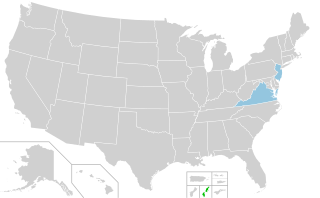
The 2005 United States elections were held on Tuesday, November 8. During this off-year election, the only seats up for election in the United States Congress were special elections held throughout the year. None of these congressional seats changed party hands. There were also two gubernatorial races, state legislative elections in two states, numerous citizen initiatives, mayoral races in several major cities, and a variety of local offices on the ballot.

The 2006 State of the Union Address was given by the 43rd president of the United States, George W. Bush, on January 31, 2006, at 9:00 p.m. EST, in the chamber of the United States House of Representatives to the 109th United States Congress. It was Bush's fifth State of the Union Address and his sixth speech to a joint session of the United States Congress. Presiding over this joint session was the House speaker, Dennis Hastert, accompanied by Dick Cheney, the vice president, in his capacity as the president of the Senate.

This article covers the details of the Preparations for Hurricane Katrina, a major category 5 hurricane that devastated parts of New Orleans, Florida, Louisiana, Mississippi, and Alabama, as well as the Hurricane Pam simulation and NWS forecasts that led to the U.S. government's decision to establish a Bipartisan Congressional Committee to investigate the country's preparedness for and response to Hurricane Katrina.
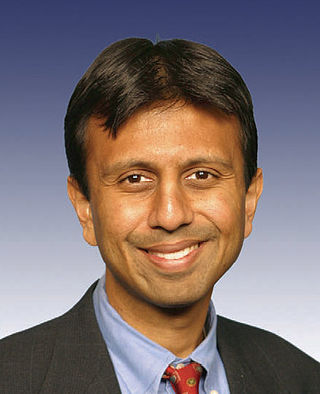
The 2007 Louisiana gubernatorial election was held on October 20. The filing deadline for candidates was September 6. On the day of the election, all 12 candidates competed in an open jungle primary. Bobby Jindal won the election with 54%. This was the first time since 1967 in which the winner of a Louisiana gubernatorial election was of the same party as the incumbent president.
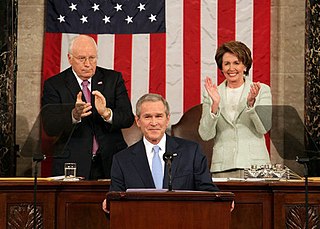
The 2007 State of the Union Address was given by the 43rd president of the United States, George W. Bush, on January 23, 2007, at 9:00 p.m. EST, in the chamber of the United States House of Representatives to the 110th United States Congress. It was Bush's sixth State of the Union Address and his seventh speech to a joint session of the United States Congress. Presiding over this joint session was the House speaker, Nancy Pelosi, accompanied by Dick Cheney, the vice president, in his capacity as the president of the Senate.

The 2002 State of the Union Address was given by the 43rd president of the United States, George W. Bush, on January 29, 2002, at 9:00 p.m. EST, in the chamber of the United States House of Representatives to the 107th United States Congress. It was Bush's first State of the Union Address and his third speech to a joint session of the United States Congress. Presiding over this joint session was the House speaker, Dennis Hastert, accompanied by Dick Cheney, the vice president, in his capacity as the president of the Senate.
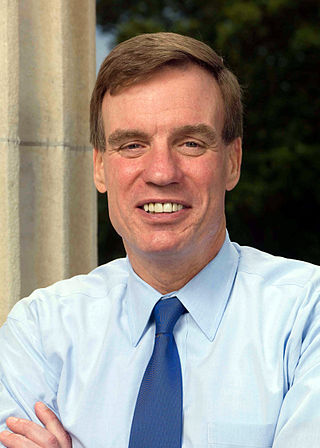
Mark Robert Warner is an American businessman and politician serving as the senior United States senator from Virginia, a seat he has held since 2009. A member of the Democratic Party, Warner served as the 69th governor of Virginia from 2002 to 2006. He is vice chair of the Senate Democratic Caucus and chair of the Senate Intelligence Committee.

The 2008 State of the Union Address was given by the 43rd president of the United States, George W. Bush, on January 28, 2008, at 9:00 p.m. EST, in the chamber of the United States House of Representatives to the 110th United States Congress. It was Bush's seventh and final State of the Union Address and his eighth and final speech to a joint session of the United States Congress. Presiding over this joint session was the House speaker, Nancy Pelosi, accompanied by Dick Cheney, the vice president, in his capacity as the president of the Senate.

The 2008 presidential campaign of Evan Bayh, Democratic Senator and 46th Governor of Indiana, began shortly after the 2004 presidential election.
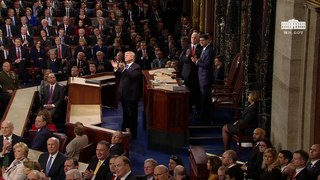
The 2018 State of the Union Address was given by the 45th president of the United States, Donald Trump, on January 30, 2018, at 9:00 p.m. EST, in the chamber of the United States House of Representatives to the 115th United States Congress. It was Trump's first State of the Union Address and his second speech to a joint session of the United States Congress. Presiding over this joint session was the House speaker, Paul Ryan, accompanied by Mike Pence, the vice president, in his capacity as the president of the Senate.
The following is a timeline of the presidency of George W. Bush, from January 1, 2005 to December 31, 2005.



















